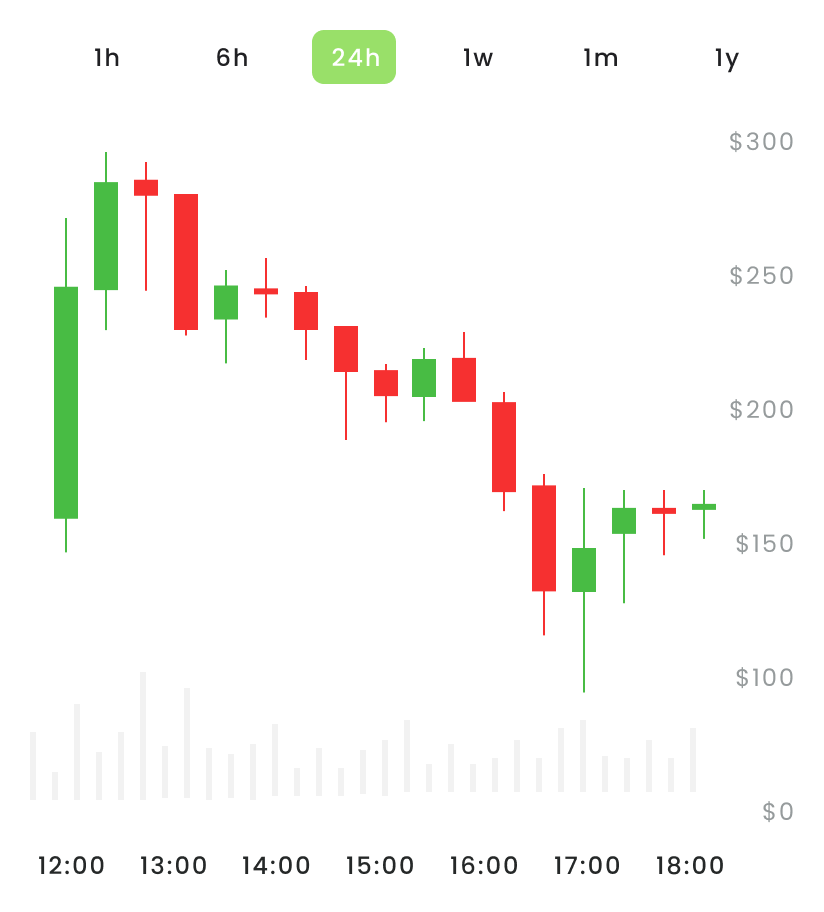


Our stock exchange brokerage website is a gateway for investors to access global financial markets.
Whether you are interested in buying shares of a company, trading foreign currencies, or investing in commodities, brokers provide the platform and tools needed to execute these trades. They act as intermediaries between investors and the financial markets, offering expertise, access to various trading products, and customer support.
Below, we introduce the major types of trading available through brokerage platforms, highlighting the opportunities and risks associated with each.
Investing through a stock exchange brokerage opens doors to a wide range of trading opportunities across multiple asset classes. Whether you are trading stocks for long-term growth, speculating on forex movements, or diversifying with commodities and bonds, brokers provide the necessary tools and platforms to navigate these markets effectively. Each type of trading has its risks and rewards, making it essential for investors to choose strategies that align with their financial goals and risk tolerance.

Stock trading involves buying and selling shares of publicly listed companies on stock exchanges like the New York Stock Exchange (NYSE), NASDAQ, or the London Stock Exchange (LSE). When you buy a stock, you are purchasing a small ownership stake in the company. Stock prices fluctuate based on the company's performance, economic conditions, and investor sentiment.
How Stock Trading Works
Through a stock exchange broker, investors place buy or sell orders for shares. Brokers offer platformsthat allow investors to monitor stock performance, analyze charts, and execute trades either manually orautomatically.
Most brokers offer two types of accounts:
Cash accounts, where the investor pays for the stock upfront.
Margin accounts, which allow investors to borrow money from the broker to purchase more stock than they could otherwise afford, with the stock itself serving as collateral.
Opportunities in Stock Trading
Stock trading offers both long-term and short-term opportunities. Long-term investors often buy and hold stocks in reputable companies, benefiting from price appreciation and dividends. Day traders, on the other hand, seek short-term gains by exploiting small price movements in highly liquid stocks. Access to global companies and the potential for high returns make stock trading attractive to a broad range of investors.
Risks in Stock Trading
However, stock trading also comes with risks, including market volatility, company performance failures, and the possibility of losing the initial investment. Brokers often provide tools like stop-loss orders to help investors limit potential losses.

Forex trading, or foreign exchange trading, is the process of buying and selling currencies in the global currency market. It is the largest financial market in the world, with over $6 trillion in daily transactions.Forex trading involves speculating on currency price movements by buying one currency while selling another.
How Forex Trading Works
Forex trading is conducted in currency pairs, such as EUR/USD (euro vs. U.S. dollar) or GBP/JPY (British pound vs. Japanese yen). Investors profit by correctly predicting the direction of a currency pair's price movement. Brokers provide access to the forex market, offering platforms where traders can execute currency trades using tools like leverage, which allows them to control larger positions with a smaller amount of capital.
Opportunities in Forex Trading
Forex trading provides unique opportunities for traders, including 24-hour market access and the ability totrade on macroeconomic events. The market is highly liquid, and traders can capitalize on small price fluctuations multiple times a day. Additionally, the availability of leverage allows traders to potentially amplify their profits.
Risks in Forex Trading
However, high leverage also increases the risk of significant losses. Forex trading is highly speculative, and factors such as political instability, interest rate changes, and global events can cause rapid and unpredictable currency movements.

Commodity trading involves buying and selling raw materials like oil, gold, silver, and agricultural products such as wheat or coffee. Commodities are typically traded in futures contracts, where buyers agree to purchase a commodity at a predetermined price at a specific date in the future.
How Commodity Trading Works
Investors can trade commodities either by purchasing physical assets or, more commonly, through derivatives like futures and options. Brokers facilitate access to commodity exchanges, including the Chicago Mercantile Exchange (CME) and the London Metal Exchange (LME). Investors often trade commodities as a hedge against inflation or currency fluctuations.
Opportunities in Commodity Trading
Commodities can serve as a diversification tool in an investment portfolio. For instance, gold is often seen as a "safe-haven" asset, maintaining its value during economic downturns. Additionally, rising demand for certain commodities like crude oil or natural gas can offer lucrative trading opportunities.
Risks in Commodity Trading
Commodity prices are influenced by various factors, including supply and demand dynamics, geopolitical events, and environmental conditions. These factors can lead to high volatility in commodity markets, and traders may experience substantial losses, especially in leveraged positions.

Stock indices represent the performance of a group of stocks from a specific market or sector. Popular indices include the S&P 500, the Dow Jones Industrial Average (DJIA), and the FTSE 100. Trading stock indices allows investors to speculate on the overall performance of a market without needing to buy individual stocks.
How Stock Index Trading Works
Stock indices are typically traded through futures contracts, ETFs, or options. Brokers provide access to indices trading platforms where investors can speculate on whether an index will rise or fall. This type of trading is particularly attractive to those who prefer to bet on broader market movements rather than individual stocks.
Opportunities in Stock Index Trading
Indices are an excellent way for investors to gain exposure to an entire market segment or economy. Trading indices can provide a balanced approach to risk, as they encompass various sectors, reducing reliance on the performance of individual companies.
Risks in Stock Index Trading
Despite the diversification, indices are not immune to market-wide risks such as economic recessions, global crises, or regulatory changes. Additionally, leveraged trading in stock indices can amplify both gains and losses.

Crypto trading refers to buying and selling digital currencies such as Bitcoin, Ethereum, and other altcoins. The cryptocurrency market operates 24/7, offering a new asset class for investors looking to diversify beyond traditional markets.
How Crypto Trading Works
Investors trade cryptocurrencies on specialized exchanges, with brokers acting as intermediaries. Cryptocurrencies can be traded directly through exchanges or via derivatives like futures and options. Most brokers provide wallets to store digital assets and tools to trade crypto pairs against fiat currencies (e.g., BTC/USD) or other cryptocurrencies (e.g., ETH/BTC).
Opportunities in Crypto Trading
Cryptocurrencies have generated significant returns for early investors and continue to offer high-growth potential. The decentralized nature of cryptocurrencies allows for peer-to-peer transactions, and blockchain technology has opened new opportunities in decentralized finance (DeFi).
Risks in Crypto Trading
Crypto trading is highly speculative and volatile, with rapid price changes that can lead to substantial losses. Regulatory uncertainty, security risks like hacking, and liquidity concerns also make cryptocurrency trading risky for inexperienced investors.

Bond trading involves buying and selling debt securities issued by corporations or governments. Bonds are generally considered lower-risk investments than stocks or commodities, offering fixed interest payments over time.
How Bonds Trading Works
Bonds can be traded on secondary markets, where investors buy and sell existing bonds, or purchased directly from issuers in primary markets. Brokers offer access to government bonds, corporate bonds, municipal bonds, and high-yield bonds. Investors often buy bonds as part of a long-term, conservative investment strategy to receive regular income.
Opportunities in Bonds Trading
Bonds provide a predictable income stream through interest payments, making them an attractive option for risk-averse investors. Government bonds are seen as a safe investment, while corporate bonds offer higher yields in exchange for slightly higher risks.
Risks in Bonds Trading
Although bonds are generally safer than stocks, they are not risk-free. Bond prices are sensitive to interest rate changes and inflation. Additionally, corporate bonds carry credit risk, where the issuer might default on payments.
Get Access to our VIP Forum , for many useful tips, and much success in their day trading activities!
Our stock exchange brokerage website is a gateway for investors to access global financial markets.
Copyright © 2024 stockexchange.broker. All rights reserved.